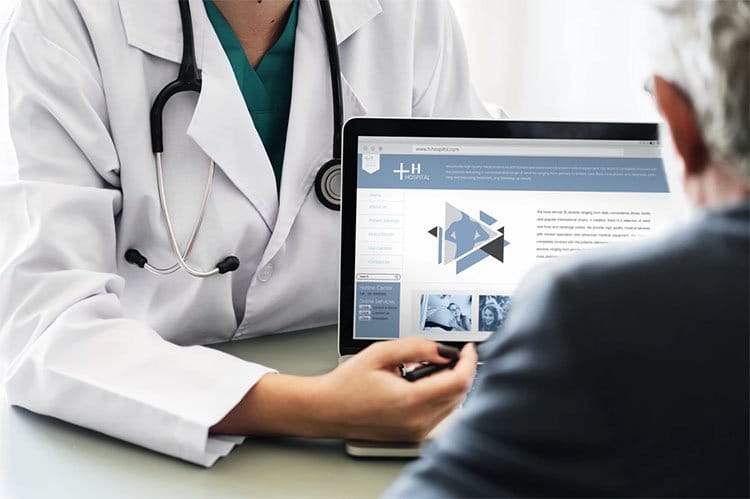Healthcare is the single largest economic sector throughout vast portions of the industrialized world. Whether handled privately, publicly or somewhere in between, the sheer amount of money spent on healthcare services is astronomical.
Nowhere is this truer than in the United States, where more than 1 in 6 dollars is spent on healthcare services across both public and private sectors.
Ultimately, every single person’s financial and medical data is being or has been handled by one or more healthcare-related agencies. In many cases, this data includes highly sensitive information such as financial information, social security numbers, addresses, and passwords, to name just a few.

As such, protecting private data in the healthcare sector is a major responsibility. Here are what healthcare companies are currently doing to protect that information.
Implementing Two-Factor Authentication (2FA)
While there are multiple methods through which would-be criminals can access private consumer data, brute-force entry via compromising users’ email accounts and other similar systems is among the most common tactics.
As such, an increasing number of healthcare providers and companies are utilizing or offering two-factor authentication as one method for reducing the likelihood of data theft.
Through two-factor authentication, users are required to login to their accounts through standard procedures such as usernames and passwords.
However, upon successfully logging in, they are also sent an email, text, or phone call with a special code that they must also enter to gain access. Since the likelihood of multiple accounts or devices being compromised is far less than one, 2FA helps prevent unauthorized access in many cases.
Utilizing Off-Site Storage Solutions and Cloud-Based Protections
Many healthcare companies simply don’t have the capacity or expertise to properly store, aggregate and protect private data. In these situations, it is increasingly prevalent for healthcare entities to utilize the services of secure, off-site services.
One such example is Central Data Storage, which offers data solutions for healthcare businesses including dental, medical and veterinary practices, to name a few.
Included in such services are backup and recovery solutions as well as encrypted sharing to minimize the risk of unauthorized exposure.
Cloud-based systems are also increasingly common, helping to not only protect unauthorized data access but also stop common digital infrastructure attacks such as DDoS (denial of service attacks).
Device Monitoring
Detecting unusual patterns in data access and digital requests is a key element in stopping potential breaches of private information. Healthcare companies are now adopting techniques that help detect suspicious behavior as it’s happening, rather than responding after the fact.
This includes logging of account access – which often can be viewed by patients through their own accounts – and device monitoring. You may be asked to provide additional verification each time you access your medical data from a unique device, which limits the opportunities criminals have to access your information.
Data Encryption Techniques
As mentioned earlier, the encryption of private medical data is increasingly becoming the norm. Through HIPAA recommendations and standard data procedures, more healthcare companies are opting to securely encrypt data both during transmission and while stored.
This ensures both that your private data cannot be intercepted when submitting it to a healthcare provider but also protects it from being accessed when nobody is interacting with it. There are several broader data encryption techniques (learn more by clicking here).
Ultimately, there is always a risk with theft – whether in the physical or digital worlds. Given emerging threats, healthcare companies are obligated both morally and legally to secure your information and protect it from would-be hackers and thieves.
While some measures are simply common sense on the part of the patient, more healthcare companies are adopting stricter, more robust guidelines and practices to ensure private patient data never falls into the wrong hands.

